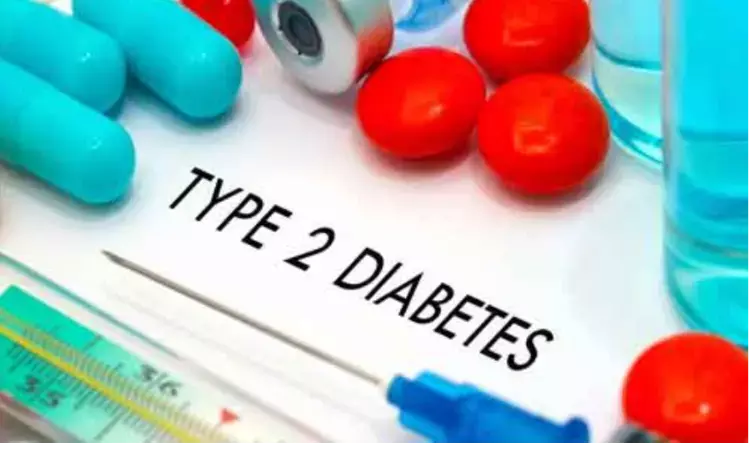- Home
- Medical news & Guidelines
- Anesthesiology
- Cardiology and CTVS
- Critical Care
- Dentistry
- Dermatology
- Diabetes and Endocrinology
- ENT
- Gastroenterology
- Medicine
- Nephrology
- Neurology
- Obstretics-Gynaecology
- Oncology
- Ophthalmology
- Orthopaedics
- Pediatrics-Neonatology
- Psychiatry
- Pulmonology
- Radiology
- Surgery
- Urology
- Laboratory Medicine
- Diet
- Nursing
- Paramedical
- Physiotherapy
- Health news
- Fact Check
- Bone Health Fact Check
- Brain Health Fact Check
- Cancer Related Fact Check
- Child Care Fact Check
- Dental and oral health fact check
- Diabetes and metabolic health fact check
- Diet and Nutrition Fact Check
- Eye and ENT Care Fact Check
- Fitness fact check
- Gut health fact check
- Heart health fact check
- Kidney health fact check
- Medical education fact check
- Men's health fact check
- Respiratory fact check
- Skin and hair care fact check
- Vaccine and Immunization fact check
- Women's health fact check
- AYUSH
- State News
- Andaman and Nicobar Islands
- Andhra Pradesh
- Arunachal Pradesh
- Assam
- Bihar
- Chandigarh
- Chattisgarh
- Dadra and Nagar Haveli
- Daman and Diu
- Delhi
- Goa
- Gujarat
- Haryana
- Himachal Pradesh
- Jammu & Kashmir
- Jharkhand
- Karnataka
- Kerala
- Ladakh
- Lakshadweep
- Madhya Pradesh
- Maharashtra
- Manipur
- Meghalaya
- Mizoram
- Nagaland
- Odisha
- Puducherry
- Punjab
- Rajasthan
- Sikkim
- Tamil Nadu
- Telangana
- Tripura
- Uttar Pradesh
- Uttrakhand
- West Bengal
- Medical Education
- Industry
Type 2 diabetes associated with increased risk of Parkinson's Disease: Study

London:Type 2 diabetes (T2DM) and Parkinson's disease (PD) are prevalent diseases that affect an aging population. Previous systematic reviews and meta‐analyses have explored the relationship between diabetes and the risk of PD, but the results have been conflicting.
Research from Queen Mary University of London has concluded that there is convincing evidence that type 2 diabetes is associated with an increased risk of Parkinson's disease. The same study found that there was also evidence that type 2 diabetes may contribute to faster disease progression in patients who already have Parkinson's.
The study has been published in the Movement Disorders Journal.
The researchers conducted the study to evaluate and investigate T2DM as a determinant of Parkinson's Disease through a meta‐analysis of observational and genetic summary data
Treating patients with drugs already available for type 2 diabetes may reduce the risk and slow the progression of Parkinson's. Screening for and early treatment of type 2 diabetes in patients with Parkinson's may be advisable.
Previous systematic reviews and meta-analyses have produced conflicting results around the link between diabetes and the risk of Parkinson's disease. This new study used meta-analysis of observational data and meta-analysis of genetic data to evaluate the effect of type 2 diabetes on risk and progression of Parkinson's disease.
Corresponding author Dr Alastair Noyce from Queen Mary University of London said: "This research brings together the results from many other studies to provide convincing evidence that type 2 diabetes likely affects not only Parkinson's risk, but also Parkinson's progression. There are many treatment strategies for type 2 diabetes, including prevention strategies, which may be re-purposed for the treatment of Parkinson's."
Using meta‐analyses of traditional observational studies and genetic data, we observed convincing evidence for an effect of T2DM on Parkinsons Disease risk and new evidence to support a role in Parkinsons Disease progression.
For further references log on to:
Dr Kamal Kant Kohli-MBBS, DTCD- a chest specialist with more than 30 years of practice and a flair for writing clinical articles, Dr Kamal Kant Kohli joined Medical Dialogues as a Chief Editor of Medical News. Besides writing articles, as an editor, he proofreads and verifies all the medical content published on Medical Dialogues including those coming from journals, studies,medical conferences,guidelines etc. Email: drkohli@medicaldialogues.in. Contact no. 011-43720751


